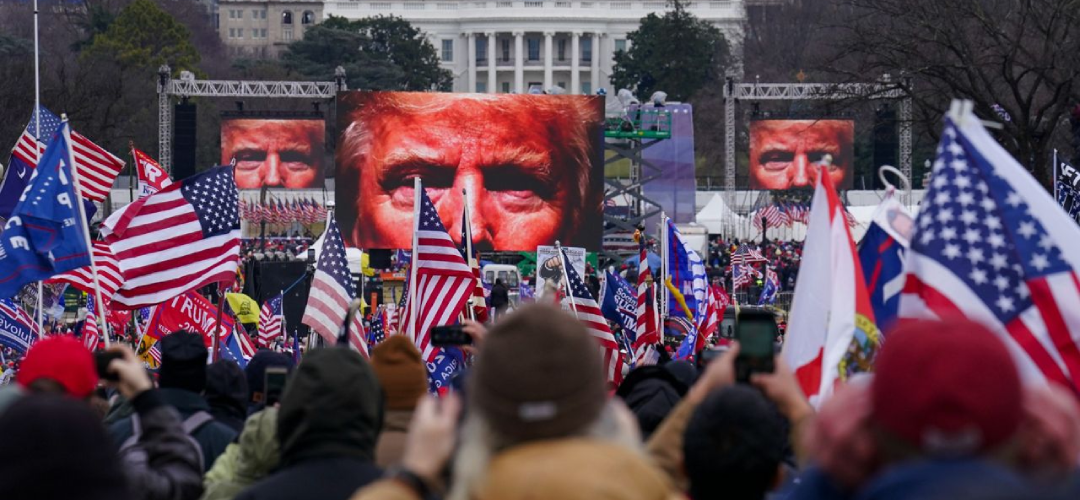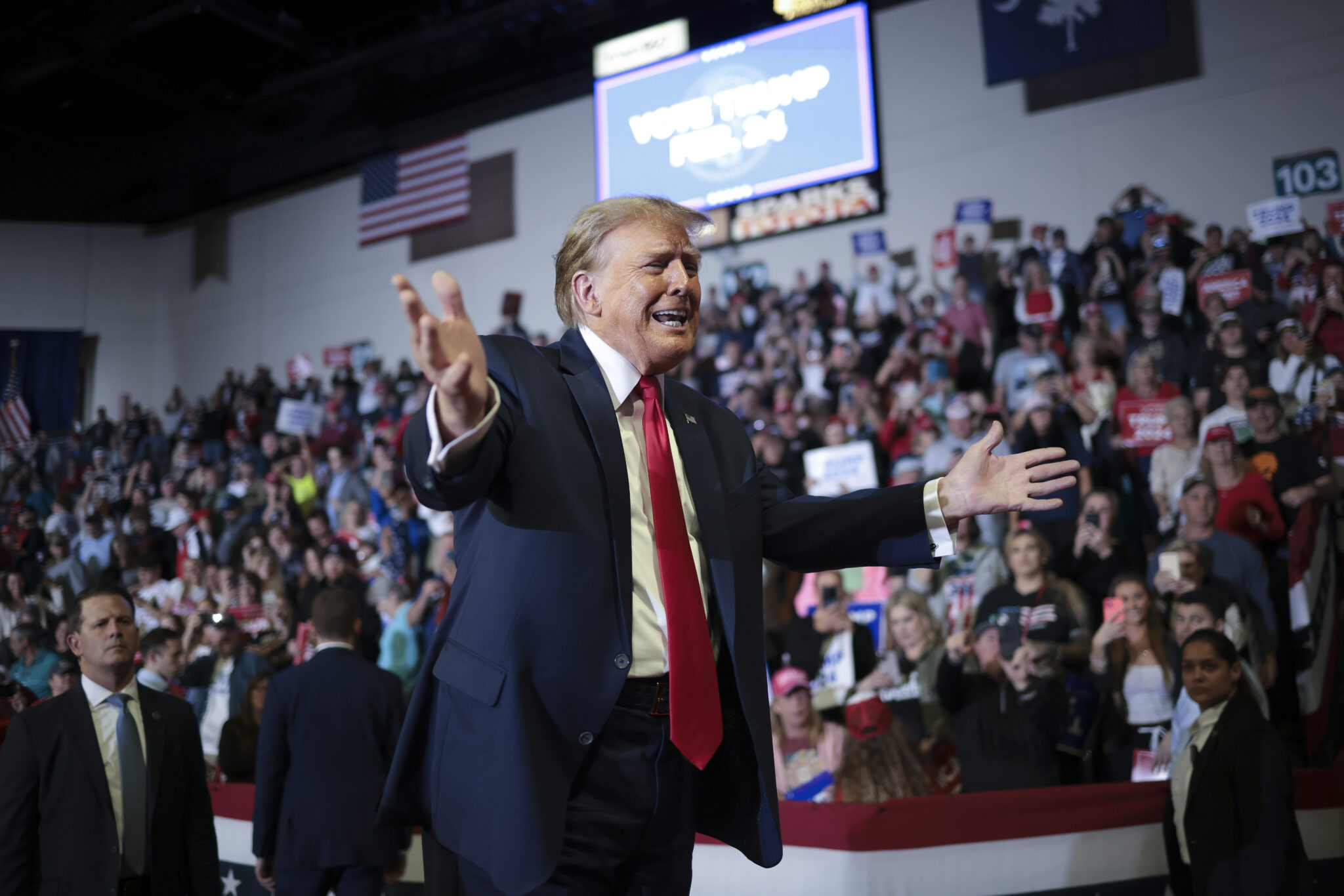Return of Trumpism?
February 17, 2024 | Expert Insights

Donald Trump's resounding victory in the Iowa caucuses has sent shockwaves through the American political landscape. With a historic 30-point margin, the former president has reasserted his dominance within the Republican party, leaving rivals scrambling for scraps.
However, the implications of this win remain murky, raising questions about its true significance and the road ahead for both Trump and his challengers.
Background
Trump's 51 per cent victory margin in Iowa is undeniable, but several factors warrant deeper analysis. Firstly, Iowa's demographics and historical voting patterns don't perfectly mirror the national electorate. With a small, predominantly white, rural, and evangelical population, it often favours Republican candidates. Secondly, turnout was low, with only 110,298 Republicans participating, representing less than 8 per cent of registered voters. This raises questions about the true extent of Trump's support and the influence of the "MAGA base."
Furthermore, Trump's campaign tactics played a significant role. His constant media presence, name recognition, and self-styled "incumbent" status likely influenced voters. Additionally, he effectively leveraged free hats and promises of Mar-a-Lago visits to incentivise participation, raising concerns about the ethics and effectiveness of such methods.
Trump's path to the nomination, let alone the presidency, is far from smooth. He faces 91 criminal charges and a federal election interference trial scheduled for March, just before Super Tuesday. While only a third of his Iowa voters expressed concerns about his potential conviction, a recent New York Times/Siena College poll suggests a quarter might reconsider his candidacy in such a scenario.
Democrats, on the other hand, see Trump's legal woes as a potential advantage, hoping they will erode his standing with the electorate. They also point to Biden's improved poll numbers against both Haley and DeSantis, suggesting a competitive general election regardless of the Republican nominee. Therefore, it becomes necessary to analyse India’s position if Trump returns to the White House.

Global Repercussions: India's Concerns and Others' Calculations
As the prospects of a potential return of Donald Trump looms on the global stage, it is imperative to move beyond the allure of personal rapport and media attention that India enjoyed during his previous administration. A nuanced analysis of the broader implications of Trump's transactional approach to foreign policy becomes crucial, with a particular focus on India's interests. While nations in the Global South, including India, might initially perceive opportunities in Trump's emphasis on bilateral deals and immediate national gains, the inherent risks and complexities need careful consideration.
Nations in the Global South, including India, might initially perceive opportunities in Trump's transactional approach to foreign policy. His emphasis on bilateral deals and focus on immediate national gains could resonate with developing economies seeking quick access to markets and resources. However, this approach also carries risks. Trump's penchant for unpredictability and willingness to abandon longstanding alliances could create instability and uncertainty in regions crucial for India's security, like the Indo-Pacific.
Trump's trade policies, characterised by protectionism and tariffs, could have a mixed impact on India. While some sectors might benefit from import substitution opportunities, others could face export restrictions and higher input costs. The broader economic uncertainty created by trade wars could also negatively impact India's growth prospects. Additionally, Trump's potential renegotiation of existing trade deals, like the Indo-Pacific Economic Framework for Prosperity (IPEF), could leave India with fewer options and less leverage in the global market.
A departure from established foreign policy norms marked President Trump's earlier tenure. His transactional stance resonated particularly with developing economies seeking swift access to markets and resources. However, it concurrently introduced an element of risk and uncertainty into diplomatic engagements. Trump's administration wielded its economic arsenal to recalibrate trade relationships, inducing tensions with several nations, India included. The imposition of tariffs on Indian steel and aluminium exports strained economic ties, compelling India to reassess its trade strategy in the face of evolving global dynamics.
Despite these challenges, the Trump administration maintained a relatively positive stance toward India, evident in high-profile events like the "Howdy Modi" gathering in Houston and the "Namaste Trump" rally in Ahmedabad, underscoring the deepening strategic partnership between the two nations. Trump's Indo-Pacific strategy aimed to counterbalance China's growing influence, with India occupying a pivotal role in this vision. Aligning on issues such as freedom of navigation and regional security, the U.S.-India partnership gained significance. However, Trump's unpredictability and his administration's willingness to reconsider longstanding alliances raised concerns. Given India's position in a volatile neighbourhood, meticulous monitoring of developments in the Indo-Pacific and the South China Sea became imperative.
Trump's robust stance on China inadvertently yielded benefits for India. The Quadrilateral Security Dialogue (Quad), comprising the United States, India, Japan, and Australia, gained prominence as a strategic counterbalance to China's assertiveness in the region. Simultaneously, India's defence ties with the United States deepened during Trump's tenure, marked by significant defence deals, including the acquisition of Apache helicopters and P-8 Poseidon aircraft, enhancing India's security capabilities.
While Trump's transactional approach offered both advantages and risks, India adeptly navigated this complex diplomatic landscape by carefully balancing its national interests. As the United States transitions to a new administration, India's strategic calculus remains dynamic, requiring a nuanced approach to maintain equilibrium between national interests and global stability in an ever-evolving world.
Assessment
- India's strategic response will likely be a delicate balancing act. While maintaining a cordial relationship with the U.S. remains important, India will need to explore alternative partnerships and diversify its strategic options. This could involve strengthening ties with regional powers like Japan and Australia, as well as deepening engagement with multilateral forums beyond those perceived to be weaker under a Trump administration.
- Domestically, a potential Trump return could reignite debates about India's foreign policy priorities. Should India prioritise economic ties over strategic partnerships? How can India navigate a more polarised global environment? These questions will require careful consideration and open discussions within the Indian policymaking establishment.
- While a potential Trump presidency might present some initial opportunities for India, the broader long-term implications are far more complex and potentially challenging. India's response must be nuanced, proactive, and focused on securing its strategic and economic interests in a rapidly evolving global landscape.








Comments